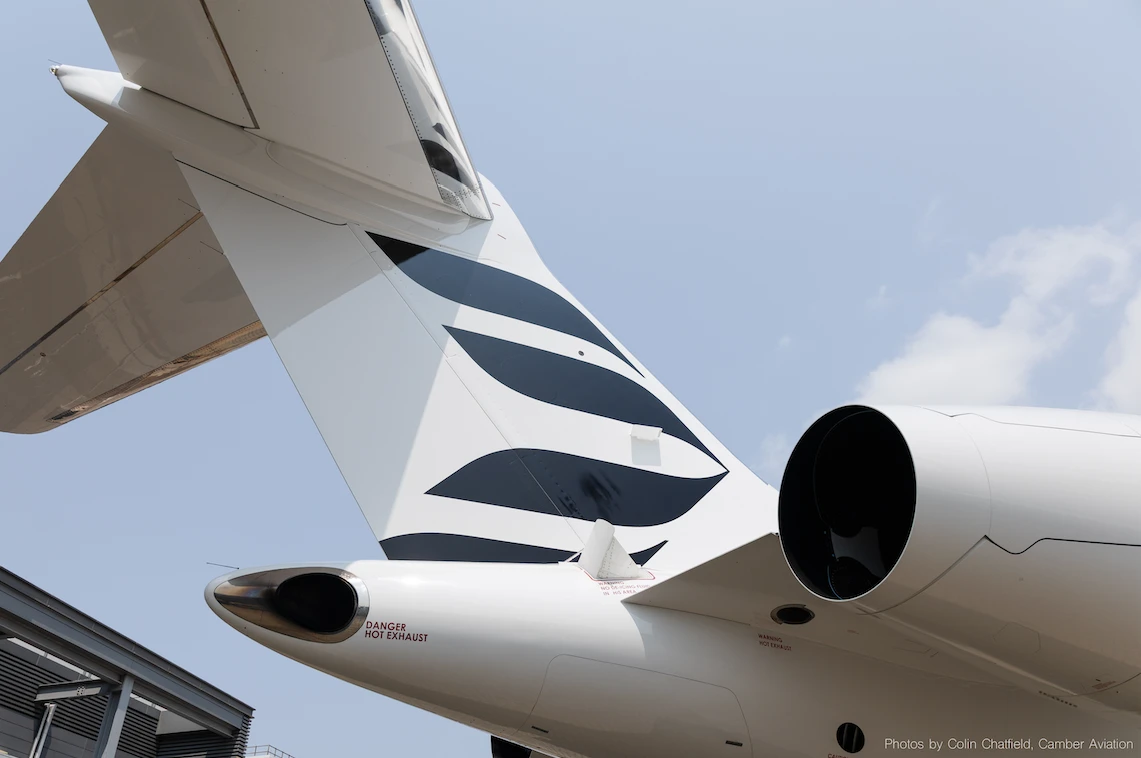Soneva rethinks the concept of luxury hospitality
Jul 25, 2023
Sonu Shivdasani founded Soneva with his wife Eva in 1995, challenging the status quo of luxury hospitality with their intelligent and barefoot luxury concept. Now they’re set to do it again. Zaneta Cheng reports
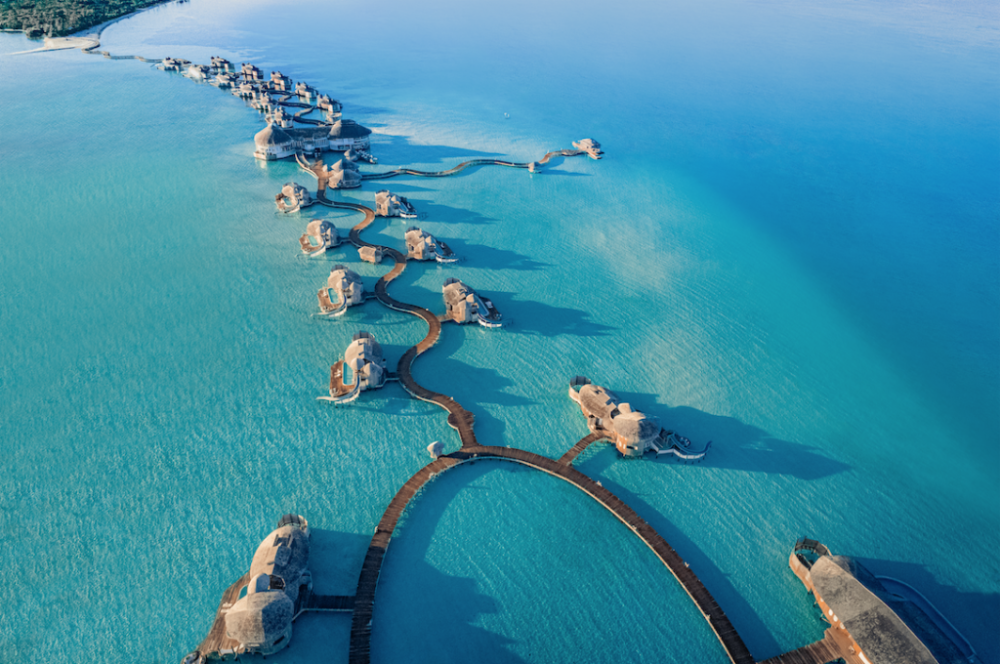
When Sonu Shivdasani set foot into the world of luxury hospitality with Soneva, he joined a cohort of hoteliers who were to build some of the most revered hospitality brands today. Think Isadore Sharp, an architect and developer who decided to run a motel he couldn’t sell. This became the Four Seasons. Adrian Zecha, writer and subsequently publisher for economic magazines, co-founded the Aman hotels. None of them had any prior hotel experience but all, including Shivdasani, broke free from any conventional norms and set a new standard for luxury hospitality.
Armed with a degree in English literature from Oxford University and time spent in Switzerland and Nigeria, Shivdasani brought the first ecologically conscious, barefoot, bohemian escapist resort to the Maldives. Soneva has grown from Soneva Fushi, a jungly island paradise with beach villas in the style of Robinson Crusoe with barefoot guardians serving as a modern reincarnation of the fictional Man Friday, to Soneva Jani, an overwater kingdom comprising mainly water villas with Soneva’s signature two-storey water slides that take guests right into the ocean, and Soneva Kiri, a hilly property set in one of the more untouched parts of Thailand. The resorts have operated carbon-neutral since they began and in the near future we can expect Soneva’s first city property and subsequently Soneva Secret, an as-yet-unrevealed project in the Maldives that will once again reset the status quo for luxury in the islands.
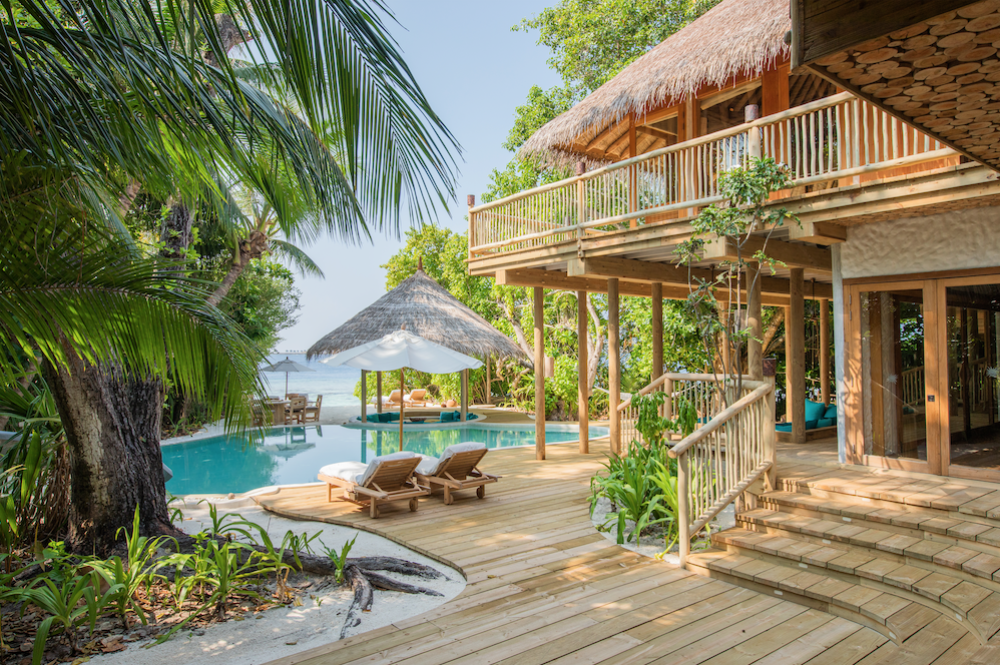
All of this growth remains firmly within the control of Shivdasani and his wife. It’s a central tenet to the way the couple are growing their business. “I believe that being owner and operator nowadays is important because luxury has become very institutional,” Shivdasani says. “Many of the luxury brands are now owned by a few large hotel companies. These once-passionate hoteliers are now long gone and their successors are just operators. They no longer own their hotels. Soneva is different. The advantage of being both the owner and the operator is that we do not have to make compromises. It allows us to preserve a clear philosophy and, over time, a strong brand DNA.”
With so much underway, it seems no better time than now to pick Shivdasani’s brain on how he sees the future of luxury before he resets it once again.
First and foremost, what is luxury hospitality to you?
We believe that luxury is something that is rare or uncommon for the consumer. It’s something novel and authentic that strikes a chord in one’s heart when it’s experienced. The last 30 to 40 years have seen a major shift in the demographics of the wealthy. They live in cities, where pollution is present in all its forms: unclean environments, noise and light. They’re not as in touch with nature, they hardly have time to sit down and take a breath, let alone spend large amounts of quality time with their family and friends. With this in mind, the experience we have created for our guests is as far removed from an urban scenario as possible, letting them indulge in things they rarely get to do in their daily lives.
When our guests arrive, the first thing we do is ask if they would like to take off their shoes. Our ‘No News, No Shoes’ mantra helps ground our guests and lets them feel the sand between their toes. Some never put their shoes back on for their entire stay. We’ve had guests say it feels strange to go back to socks, shoes and high heels once they leave.
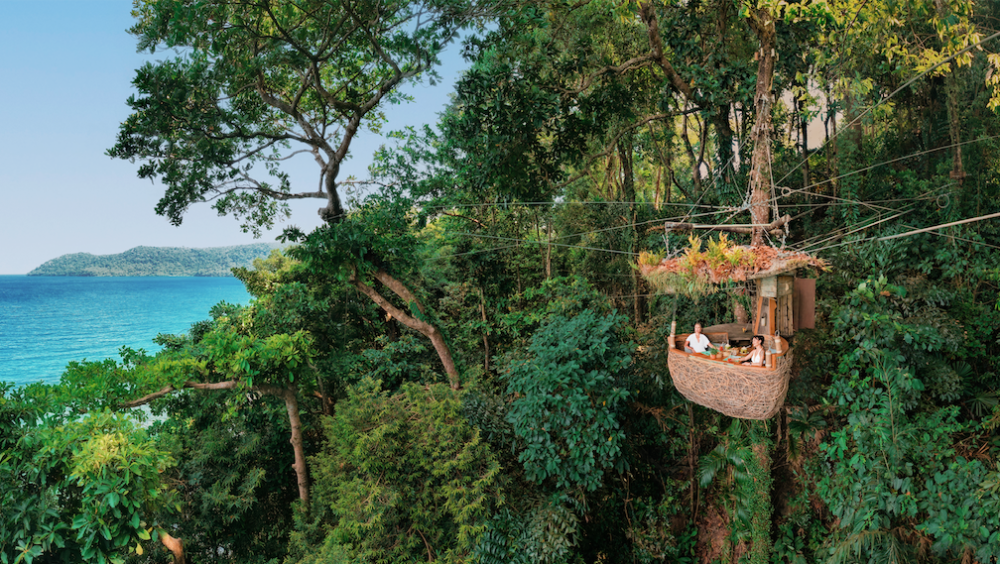
With our food and beverage offerings we do our best to source as locally as possible, be that from our organic gardens, from the plentiful seas that surround our islands, or sourced from nearby islands and countries. Sourcing locally has two main benefits: our ingredients don’t have to travel so far to reach our guests’ plates, thus keeping their nutritional values intact; and it reduces our carbon emissions. There’s absolutely no detrimental impact on the environment and our guests savour their meals with the knowledge that the food they consume is free of chemicals, fair-trade, and sourced sustainably. Other examples are the fair-trade dark chocolate in our chocolate rooms or the biodynamic and organic wines that dominate our wine lists.
Some of my favourite signature Soneva features of our resorts are the outdoor cinemas, our observatories and the large outdoor bathrooms. We believe these are true luxuries; watching a film under the star- lit sky, exploring the wonders of space and bathing while surrounded by nature.
Expense, we would argue, is not indicative of luxury. Rarity, however, is. The features in our resorts are not often found in other resorts or restaurants around the world. It’s rare to enjoy oneself while doing something positive for the environment. So, we’ve combined apparent opposites and found ways in
which they can live hand in hand.
Also see: Finding Maldivian bliss at Soneva Jani and Soneva Fushi
Soneva is a portmanteau of your and your wife’s names. How have you and Eva lived your lives, and how did this fuse into the ethos of your hospitality brands?
Eva was brought up to always think of our planet. She has been caring about nature since she was a child, and taught me and then all of our hosts to love and appreciate nature. Her personal philosophy has significantly influenced the ethos of Soneva, and has shaped its core values and practices. Our personal experiences and values have also served as a compass for shaping the brand, and we strive to create resorts that reflect our own way of life. By infusing sustainability, cultural authenticity, well-being and meaningful experiences into every aspect of Soneva, we hope to inspire guests to embrace a more conscious and fulfilling way of travelling and living.
Among other things, Soneva Fushi and Soneva Jani stand out for their design. What is the design language that you and Eva adopt and how is it that you want guests to feel in these spaces?
At Soneva, our overarching design language can be described as “barefoot luxury” or “intelligent luxury”. We aim to create spaces that exude a sense of relaxation, harmony with nature and a connection to the surrounding environment. Our design ethos revolves around the principles of sustainability, timelessness and understated elegance.
In our resorts, you’ll find a seamless integration of natural elements, locally sourced materials and eco-friendly practices. We prioritise the use of sustainable materials, such as reclaimed wood, natural fibres, and recycled materials, to minimise our ecological footprint. This allows us to create spaces
that not only blend harmoniously with the environment but also stand the test of time.
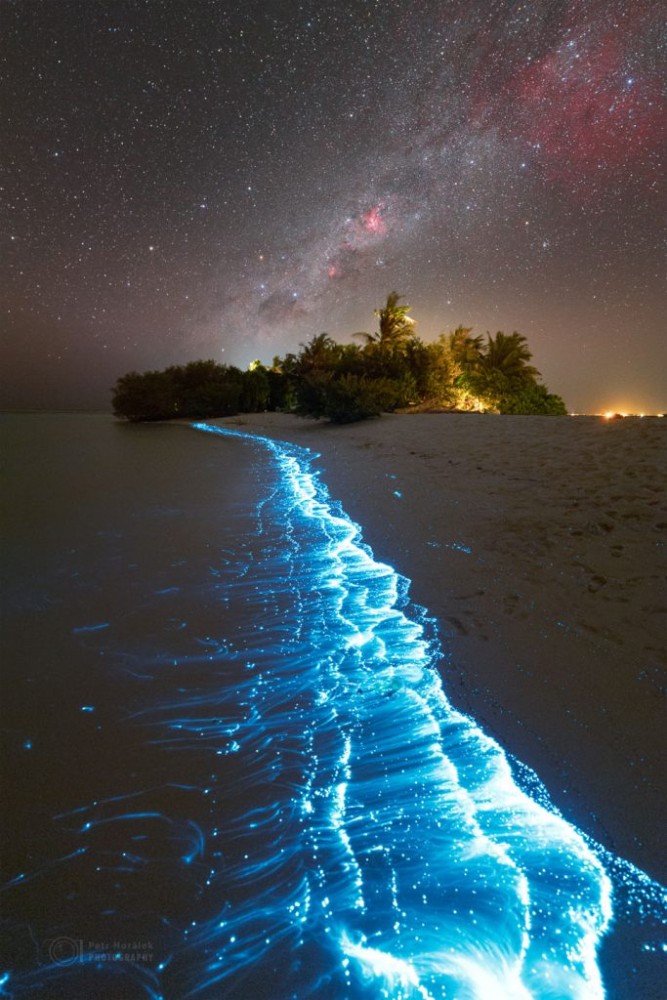
The design of our resorts emphasises open-air architecture, with abundant natural light, breezy spaces and a fluid transition between indoor and outdoor areas. We want our guests to feel a sense of liberation, as if they’ve stepped into a sanctuary where they can reconnect with nature and experience a slower, more mindful way of living. Whether it’s a luxurious villa, a spa or a dining pavilion, every space is thoughtfully designed to offer a high level of comfort, while still maintaining a relaxed and unpretentious atmosphere.
When guests stay at Soneva, we want them to feel a sense of awe, wonder and serenity. We want them to experience a deep connection with nature. Our aim is to create an environment where guests can immerse themselves in a luxurious setting that aligns with their values, fosters well-being and leaves a lasting impression.
Also see: New Maldives resort opens near UNESCO Biosphere Reserve blue waters


















